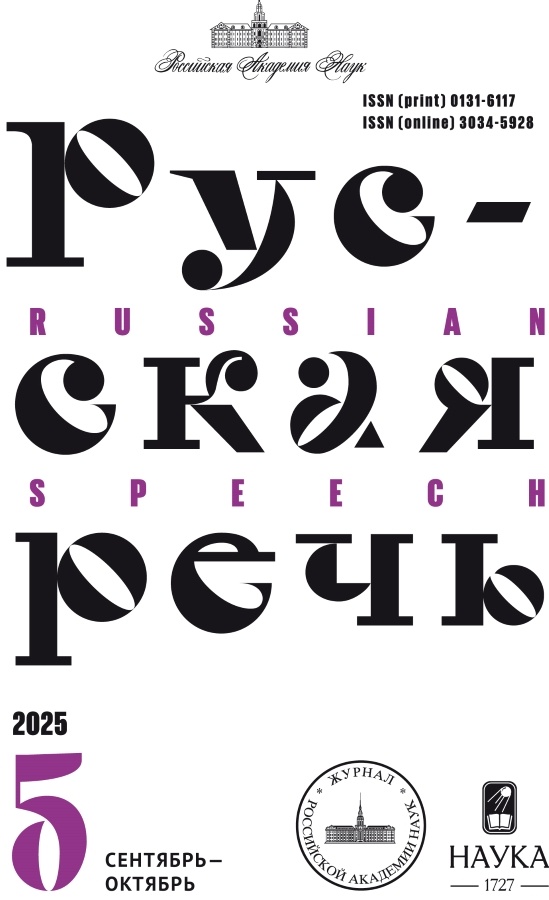Dó nelzya, Donélzya or Donelzyá? Peculiarities of Stress Patterns in Certain Adverbs
- Authors: Korpechkova E.V.1
-
Affiliations:
- Vinogradov Russian Language Institute of the Russian Academy of Sciences
- Issue: No 5 (2025)
- Pages: 22-29
- Section: Issues of Modern Russian Language
- URL: https://rjmseer.com/0131-6117/article/view/692800
- DOI: https://doi.org/10.31857/S0131611725050025
- ID: 692800
Abstract
The article presents the results of a sociolinguistic experiment conducted as part of the work on the preparation of a Large accentological dictionary of the Russian language. The study, which involved native speakers of literary pronunciation, revealed a discrepancy between vocabulary recommendations and usage. So, all the respondents said vzashéy, nazló, naperegonkí, while dictionaries record as equal or acceptable variants vzáshey, názlo, naperegónki. Accents ískoni, ízdrevle, included in dictionaries with a mark !неправ., prevailed in the pronunciation of respondents of all age groups. Adverbs zavídno and donélzya retained their normative pronunciation mainly in the speech of the older generation, while the youth showed variability. The rarely used book words were pronounced by the respondents of the older and middle groups in accordance with the norm fixed in dictionaries: vprishchúr, íspodvol', kráduchis', naótmash', návznich', nevést', pórozn' in accordance with the norm fixed in dictionaries, these adverbs showed variability in the speech of the younger respondents. The study confirms the dynamics of accentological norms and the need to revise vocabulary recommendations, especially for words with high frequency. Artificial consolidation of norms (for example, by including one or another option in exam assignments) is not effective enough.
About the authors
E. V. Korpechkova
Vinogradov Russian Language Institute of the Russian Academy of Sciences
Email: lelene@yandex.ru
Moscow
References
- Es'kova N. A. Slovar' trudnostei russkogo yazyka. Udarenie. Grammaticheskie formy [Dictionary of difficulties of the Russian language. Accent. Grammatical forms]. Moscow, Yazyki Slavyanskikh Kul'tur Publ., 2014. 536 p.
- Kalenchuk M. L., Kasatkin L. L., Kasatkina R. F. Bol'shoi orfoepicheskii slovar' russkogo yazyka. Literaturnoe proiznoshenie i udarenie nachala XXIveka: norma i ee varianty [TheGreat Orthoepical Dictionary of the Russian language. Literary pronunciation and stress of the beginning of the XXI century: the norm and its variants]. Moscow, AST-PRESS SHKOLA Publ., 2023. 1024 p.
- Kalenchuk M. L., Savinov D. M. [The creation of a new academic accentological dictionary of the Russian language]. Trudy Instituta russkogo yazyka im. V. V. Vinogradova RAN, 2023, no. 4, pp. 257–272. (In Russ.)
- Natsional'nyi korpus russkogo yazyka [Russian National Corpus]. Available at: http://ruscorpora.ru/ (accessed 25.06.2025).
- Reznichenko I. L. Slovar' udarenii russkogo yazyka [Dictionary of accents of the Russian language]. Moscow, AST-PRESS SHKOLA Publ., 2021. 944 p.
- Rozental D. E. Spravochnik po pravopisaniiu i literaturnoi pravke [Handbook of Spelling and Literary Editing]. Moscow, Iris-Press Publ, 2012. 368 p.










